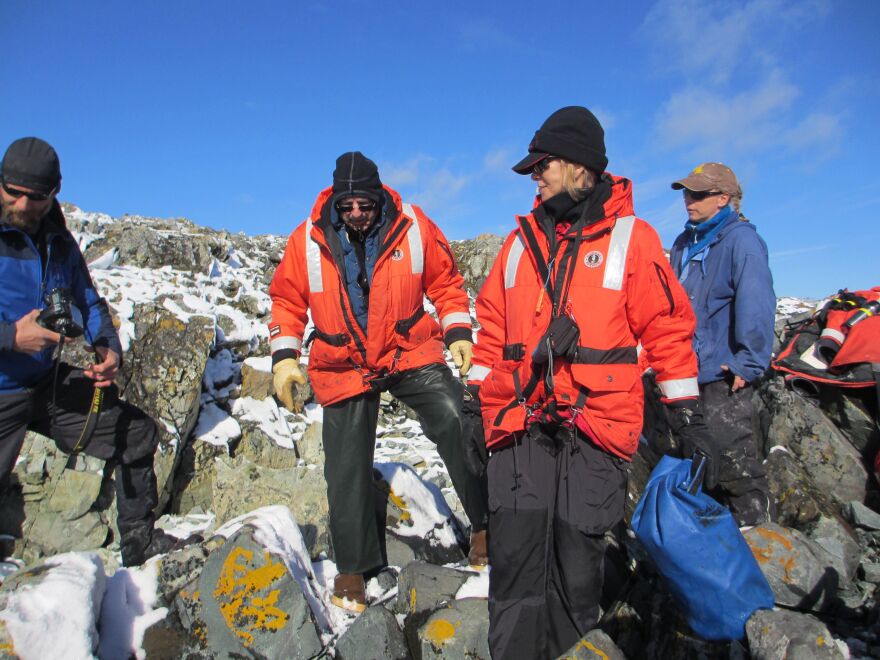With no permanent residents, Antarctica is often a forgotten place. But not for Colorado State University soil ecologist Diana Wall. She's been a keen observer of one of the smallest animals now struggling to live in a place that’s still cold—but is beginning to warm.
The cold, dry, and salty soil in Antarctica is a tough place for most species to live. But it’s the ideal home for the microscopic roundworms, or nematodes, that Diana Wall has been tracking for years.
Wall has found that one particular species, Scottnema lindsayae, is responsible for about 5-7% of soil carbon turnover.
“It sounds low,” says Wall, “but it’s actually pretty high for a single species.”
Adapted to thrive in the dry Antarctic deserts, these roundworms have not fared well as recent warming has melted ice. Over the last 15 years, Wall says she’s seen a 65% decline in the worms.
“To have a single species decline by that much over a period of time is very important because it’s the most dominant species in the dry valleys,” says Wall.
http://youtu.be/u_vhQ31B4rw
In the July 13th issue of Science Magazine, Wall and other researchers banded together to call for more conservation of Antarctica, in large part because of these kinds of climate impacts. But they are worried that the 1959 Antarctic Treaty, which prohibits things like mineral mining, is also under threat.
“One of our concerns is that as the human population keeps growing that in the next 50 years, as demands for resources such as gas and oil are needed, that there will be a demand on the Antarctic continent that will dissolve some of these Antarctic Treaty regulations,” says Wall.
These kinds of protections won’t just be for the sake of Antarctica, either.
“Kind of messing with that continent, it also means we’re messing with the rest of the world,” says Wall.
Dr. Diana Wall is a professor of biology and director of the School of Global Environmental Sustainability at Colorado State University. Just this month, she was awarded the President’s Medal for Excellence in Antarctic Research from the Scientific Committee on Antarctic Research.
Video courtesy of McMurdo Dry Valleys Long Term Ecological Research Soil Ecology Team.





